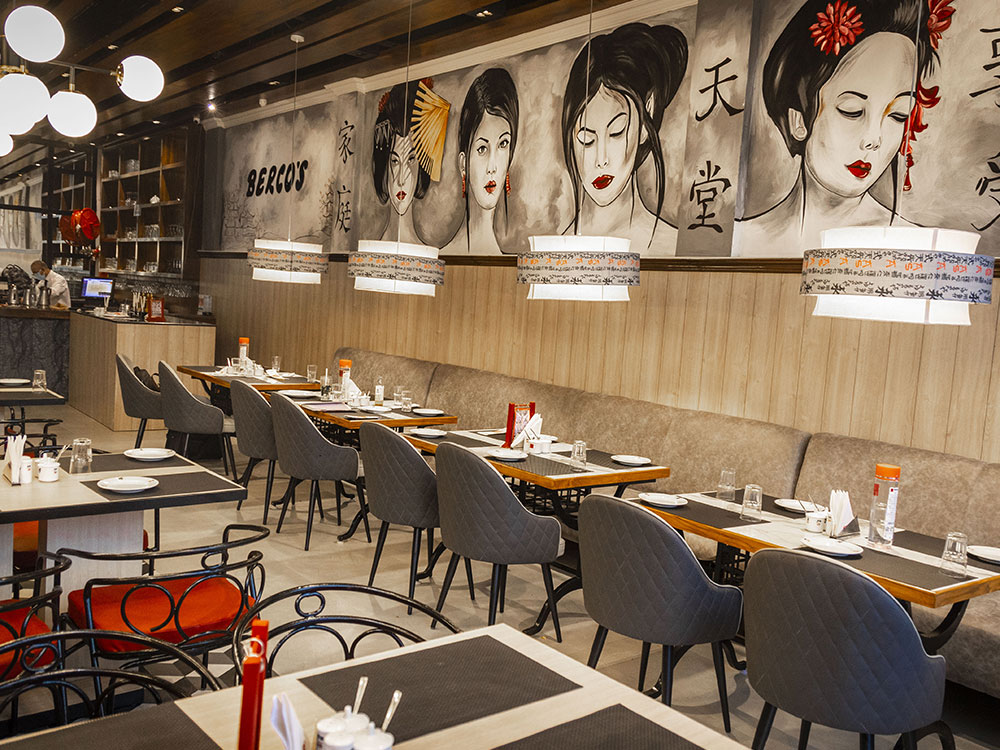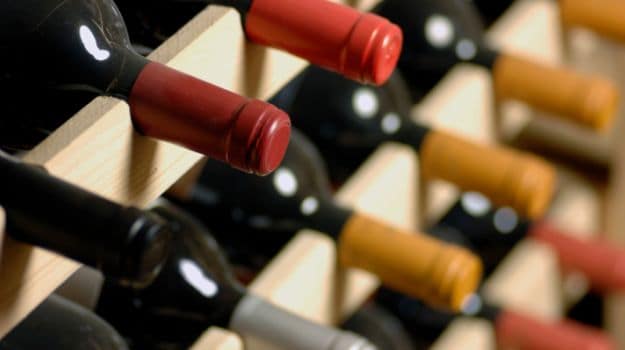In wine-loving France, owners of fine bottles have ironically adopted a practice started in neighbouring Britain that helps ensure the old French adage, "life is too short to drink bad wine". Britain's connoisseurs have long entrusted their best tipple to private firms for safe keeping. The idea only crossed the Channel to France, which produces much of the great wine that interests collectors, when a well-heeled Asian clientele started driving up prices.One of the pioneers in the business, London wine merchants FINE+RARE, started renting space to customers in 1994 to keep good bottles out of harm's way - from thieves and other enemies like fickle temperature, light and vibration."Our storage clients are predominantly private clients, storing fine wine for future drinking or resale," said Joss Flower, the firm's grand cru director.
Most live in Britain, with the Far East in second place since the firm also operates in Hong Kong, but customers come from all over the world, Flower said.The firm's vaults are a 40-minute drive downstream from London at Tilbury, a historic port on the Thames ideally placed to ship deliveries worldwide, on the premises of the warehousing firm London City Bond.The storage is "world-class," Flower said, "safe, secure, temperature-controlled" so corks, labels and wine remain in a perfect state for years.Like Cheap InsuranceIt's no surprise that storing private wines caught on in London, the capital of European finance where almost anything is negotiable, including vintage bottles.France took notice when wine prices began soaring -- first with Bordeaux varieties around 2010 before Chinese buyers also turned to bottles from Burgundy, which are rare, according to Angelique de Lencquesaing, founder of the online auction site iDealwine.The "WineDexBordeaux," an index established on her Internet site, has climbed by more than 103 percent since 2007, while the "WineDexBourgogne" (Burgundy) has gone up by 113 percent. "The prices of some great vintages are so very high that storage is like an insurance that doesn't cost very much," said Andrew Amiach, who runs the Montquartiers wine cellars, not far from Paris. Twenty metres (66 feet) under the soil, the cellars at Montquartiers were carved out some 20 years ago in chalk quarries about 200 years old. The site is naturally well-suited to preserving bottles, with a temperature of 13 degrees Celsius (55 degrees Farenheit) and the appropriate level of humidity. Big collectors and professionals such as wine sellers and restaurateurs can rent a safe cellar, to which they alone have the key, for 300 euros ($335) a month. They are also given a small wine-tasting salon.But in the past couple of years, low-cost storage has been made available to the general public, such as space for 50 bottles at nine euros per month.'Corkscrews Are Banned'In such cases, a collective cellar is used, but tight security measures still apply. Of 10 employees in the Montquartiers company, only two have a key."To avoid the slightest temptation, corkscrews are banned," Amiach said, smiling.Today, the Montquartiers cellars stock 100,000 bottles owned by some 300 clients, including wines fit for well-off epicures such as a 1900 Sauternes and a pallet of Romanee-Conti bottles worth a total 100,000 euros.The same need for new facilities has been felt in the central city of Lyon, long a gastronomic capital, where soaring property prices and a lack of private storage space coincide with a promising market for wine.Businessman Philippe Gangneux founded La Cave Lyon -- modelled on a seasoned storage business in the French capital called La Cave Paris -- in a former factory three years ago, now safeguarding wines some customers don't dare keep at home."You see here, a client called to ask me to photograph these bottles from the Romanee-Conti domaine, which he wants to sell," Gangneux said as an employee carefully pulled them out of packing straw. "This one... it's worth at least 7,000 euros."Further inside, pallets are well-wrapped. The biggest single client of La Cave Lyon is an Italian businessman who decided to store 13,000 bottles of great vintage wines in France. Like the guardian of a temple, Gangneux knows the stories behind labels, and bottles are synonymous with their owners."Over here, you have a client who lives in India. Twenty percent of my clients live abroad," he added."And there is my smallest client, a surgeon who saved somebody's life. The patient, very grateful, gave him two bottles of Chateaux Petrus."
Most live in Britain, with the Far East in second place since the firm also operates in Hong Kong, but customers come from all over the world, Flower said.The firm's vaults are a 40-minute drive downstream from London at Tilbury, a historic port on the Thames ideally placed to ship deliveries worldwide, on the premises of the warehousing firm London City Bond.The storage is "world-class," Flower said, "safe, secure, temperature-controlled" so corks, labels and wine remain in a perfect state for years.Like Cheap InsuranceIt's no surprise that storing private wines caught on in London, the capital of European finance where almost anything is negotiable, including vintage bottles.France took notice when wine prices began soaring -- first with Bordeaux varieties around 2010 before Chinese buyers also turned to bottles from Burgundy, which are rare, according to Angelique de Lencquesaing, founder of the online auction site iDealwine.The "WineDexBordeaux," an index established on her Internet site, has climbed by more than 103 percent since 2007, while the "WineDexBourgogne" (Burgundy) has gone up by 113 percent. "The prices of some great vintages are so very high that storage is like an insurance that doesn't cost very much," said Andrew Amiach, who runs the Montquartiers wine cellars, not far from Paris. Twenty metres (66 feet) under the soil, the cellars at Montquartiers were carved out some 20 years ago in chalk quarries about 200 years old. The site is naturally well-suited to preserving bottles, with a temperature of 13 degrees Celsius (55 degrees Farenheit) and the appropriate level of humidity. Big collectors and professionals such as wine sellers and restaurateurs can rent a safe cellar, to which they alone have the key, for 300 euros ($335) a month. They are also given a small wine-tasting salon.But in the past couple of years, low-cost storage has been made available to the general public, such as space for 50 bottles at nine euros per month.'Corkscrews Are Banned'In such cases, a collective cellar is used, but tight security measures still apply. Of 10 employees in the Montquartiers company, only two have a key."To avoid the slightest temptation, corkscrews are banned," Amiach said, smiling.Today, the Montquartiers cellars stock 100,000 bottles owned by some 300 clients, including wines fit for well-off epicures such as a 1900 Sauternes and a pallet of Romanee-Conti bottles worth a total 100,000 euros.The same need for new facilities has been felt in the central city of Lyon, long a gastronomic capital, where soaring property prices and a lack of private storage space coincide with a promising market for wine.Businessman Philippe Gangneux founded La Cave Lyon -- modelled on a seasoned storage business in the French capital called La Cave Paris -- in a former factory three years ago, now safeguarding wines some customers don't dare keep at home."You see here, a client called to ask me to photograph these bottles from the Romanee-Conti domaine, which he wants to sell," Gangneux said as an employee carefully pulled them out of packing straw. "This one... it's worth at least 7,000 euros."Further inside, pallets are well-wrapped. The biggest single client of La Cave Lyon is an Italian businessman who decided to store 13,000 bottles of great vintage wines in France. Like the guardian of a temple, Gangneux knows the stories behind labels, and bottles are synonymous with their owners."Over here, you have a client who lives in India. Twenty percent of my clients live abroad," he added."And there is my smallest client, a surgeon who saved somebody's life. The patient, very grateful, gave him two bottles of Chateaux Petrus."
Advertisement
For the latest food news, health tips and recipes, like us on Facebook or follow us on Twitter and YouTube.
Tags:



